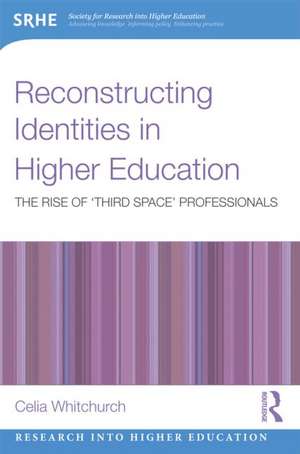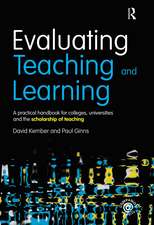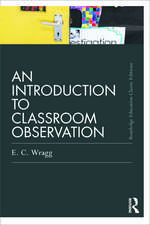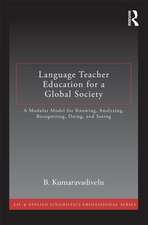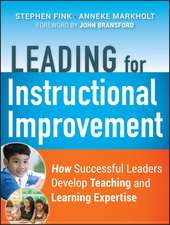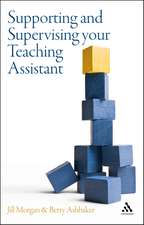Reconstructing Identities in Higher Education: The rise of 'Third Space' professionals: Research into Higher Education
Autor Celia Whitchurchen Limba Engleză Paperback – 19 oct 2012
The concept of Third Space is offered as a way of exploring the knowledges, relationships, legitimacies and languages that characterise those who work in less boundaried roles, and the implications of these developments for both individuals and institutions. The ability to problematise and accommodate a series of paradoxes and tensions, for instance between formal and more open-ended structures and relationships, would appear to be at the heart of working in Third Space. Individuals also grapple with the fact that Third Space can, at one and the same time, be a safe haven for experimentation and creativity, and also a risky space in which there is likely to be contestation and uncertainty.
The text is addressed to professional and academic staff who, by design or default, for long or short periods, find themselves working in Third Space environments; to those to whom such staff may be responsible, including senior management teams; and also to researchers interested in changing identities in higher education.
| Toate formatele și edițiile | Preț | Express |
|---|---|---|
| Paperback (1) | 320.17 lei 6-8 săpt. | |
| Taylor & Francis – 19 oct 2012 | 320.17 lei 6-8 săpt. | |
| Hardback (1) | 890.91 lei 6-8 săpt. | |
| Taylor & Francis – 19 oct 2012 | 890.91 lei 6-8 săpt. |
Din seria Research into Higher Education
-
 Preț: 279.92 lei
Preț: 279.92 lei -
 Preț: 302.61 lei
Preț: 302.61 lei -
 Preț: 302.59 lei
Preț: 302.59 lei -
 Preț: 279.17 lei
Preț: 279.17 lei -
 Preț: 294.74 lei
Preț: 294.74 lei -
 Preț: 287.82 lei
Preț: 287.82 lei -
 Preț: 352.37 lei
Preț: 352.37 lei -
 Preț: 379.75 lei
Preț: 379.75 lei -
 Preț: 302.01 lei
Preț: 302.01 lei - 26%
 Preț: 849.84 lei
Preț: 849.84 lei - 13%
 Preț: 327.61 lei
Preț: 327.61 lei -
 Preț: 353.72 lei
Preț: 353.72 lei -
 Preț: 273.18 lei
Preț: 273.18 lei - 18%
 Preț: 889.80 lei
Preț: 889.80 lei -
 Preț: 380.70 lei
Preț: 380.70 lei - 18%
 Preț: 894.66 lei
Preț: 894.66 lei -
 Preț: 341.86 lei
Preț: 341.86 lei -
 Preț: 352.39 lei
Preț: 352.39 lei - 18%
 Preț: 891.40 lei
Preț: 891.40 lei -
 Preț: 353.90 lei
Preț: 353.90 lei -
 Preț: 348.57 lei
Preț: 348.57 lei -
 Preț: 286.57 lei
Preț: 286.57 lei -
 Preț: 380.74 lei
Preț: 380.74 lei -
 Preț: 480.46 lei
Preț: 480.46 lei - 18%
 Preț: 1006.43 lei
Preț: 1006.43 lei - 19%
 Preț: 240.68 lei
Preț: 240.68 lei - 26%
 Preț: 680.31 lei
Preț: 680.31 lei -
 Preț: 352.71 lei
Preț: 352.71 lei - 18%
 Preț: 890.43 lei
Preț: 890.43 lei - 17%
 Preț: 232.14 lei
Preț: 232.14 lei - 18%
 Preț: 997.90 lei
Preț: 997.90 lei - 31%
 Preț: 681.15 lei
Preț: 681.15 lei
Preț: 320.17 lei
Nou
Puncte Express: 480
Preț estimativ în valută:
61.28€ • 66.15$ • 51.38£
61.28€ • 66.15$ • 51.38£
Carte tipărită la comandă
Livrare economică 19 aprilie-03 mai
Preluare comenzi: 021 569.72.76
Specificații
ISBN-13: 9780415614832
ISBN-10: 041561483X
Pagini: 184
Ilustrații: 1 black & white illustrations, 16 black & white tables
Dimensiuni: 156 x 234 x 15 mm
Greutate: 0.7 kg
Ediția:1
Editura: Taylor & Francis
Colecția Routledge
Seria Research into Higher Education
Locul publicării:Oxford, United Kingdom
ISBN-10: 041561483X
Pagini: 184
Ilustrații: 1 black & white illustrations, 16 black & white tables
Dimensiuni: 156 x 234 x 15 mm
Greutate: 0.7 kg
Ediția:1
Editura: Taylor & Francis
Colecția Routledge
Seria Research into Higher Education
Locul publicării:Oxford, United Kingdom
Public țintă
Academic, Postgraduate, Professional, and Professional Practice & DevelopmentCuprins
Part I 1. Introduction 2. The Concept of Third Space Part II 3. Being a Third Space Professional 4. Paradoxes and Dilemmas Part III 5. Third Space Professionals and the Organisational Interface 6. Possible Futures
Notă biografică
Dr Celia Whitchurch is Senior Lecturer in Higher Education at the University of London Institute of Education. Between 2005 and 2009 she undertook two studies funded by the UK Leadership Foundation for Higher Education on the changing roles and identities of professional staff, and the emergence of a Third Space between academic and professional spheres of activity. In 2010 she edited a monograph with George Gordon, entitled Academic and Professional Identities in Higher Education: The Challenges of a Diversifying Workforce, also published by Routledge.
Recenzii
"Whitchurch’s research has implications for our understanding of professionals in higher education and organizational structures in modern higher education institutions. She frames professional roles according to four "dispositions"—bounded professionals, cross-boundary professionals, unbounded professionals, and blended professionals—that can be distinguished by their degree of agency within their organizational structure and their affinity to their associated spaces, knowledges, relationships, and legitimacies. The resulting typology forms 16 unique identity categories that can help us understand the context, motivations, and operational behaviors of professionals in complex organizations". - Jeri L. Childers, University of Technology, Sydney
